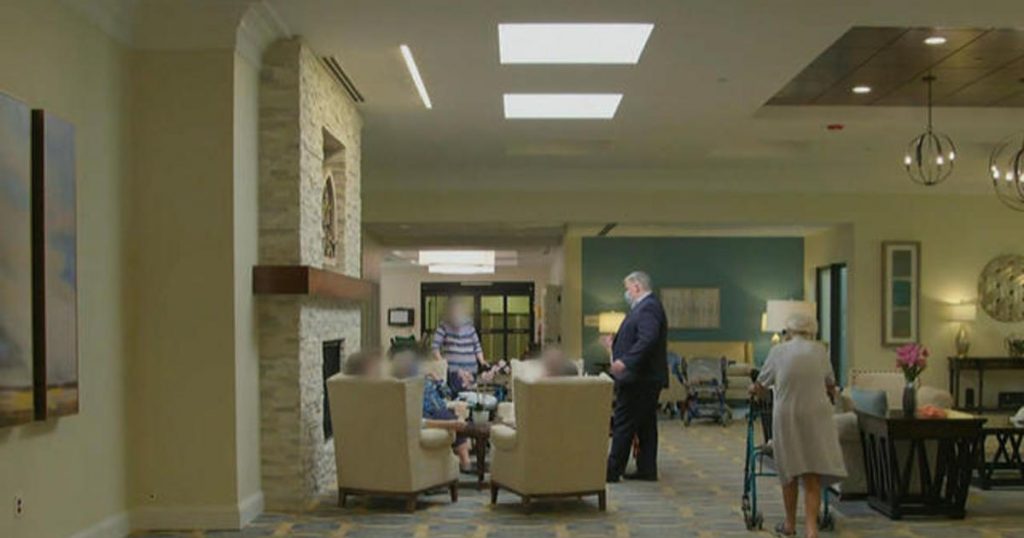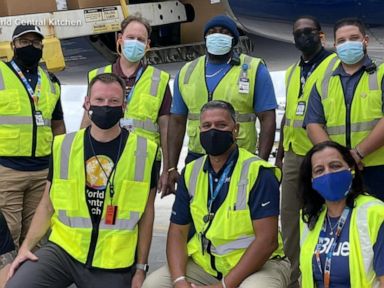
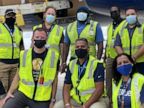

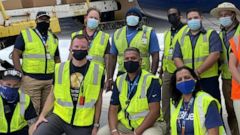
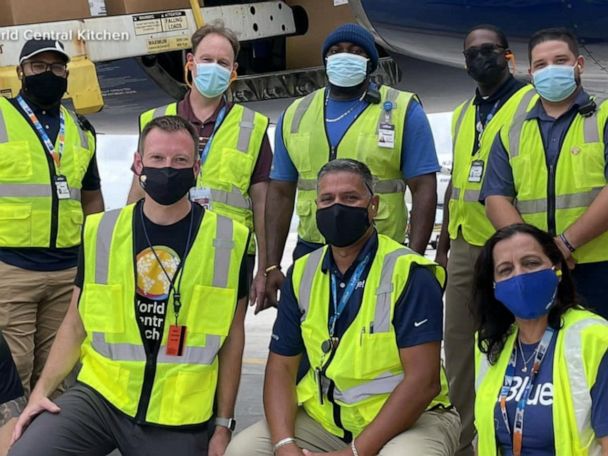
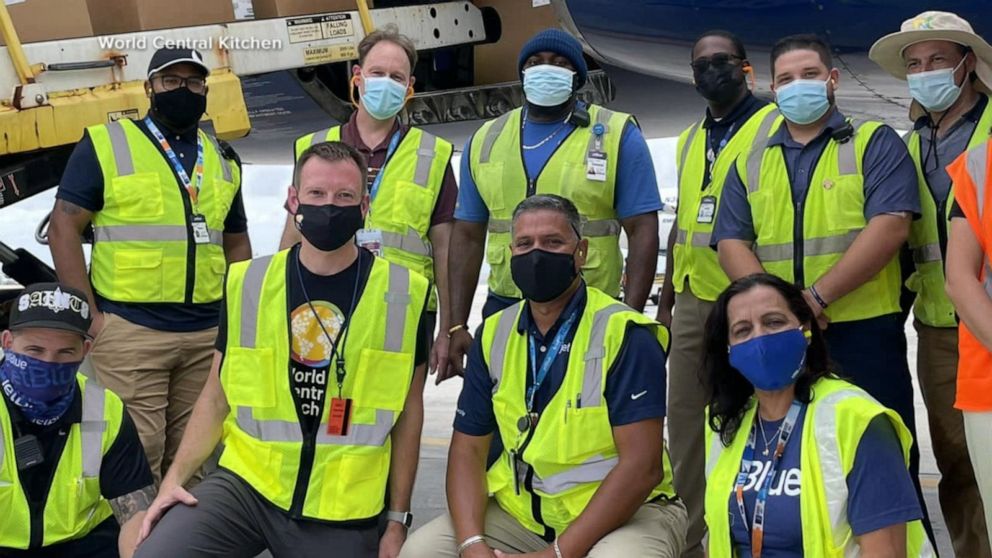
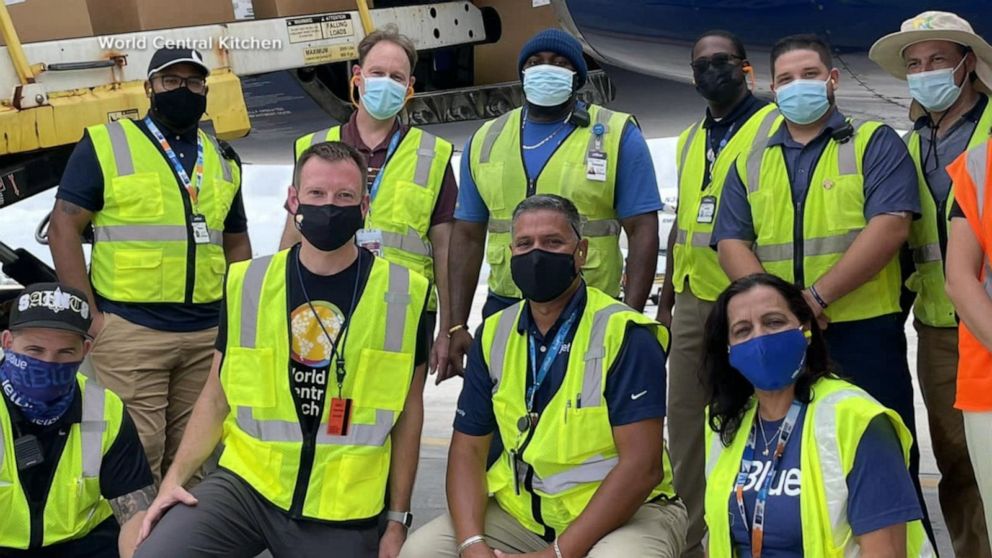
Transcript for How to help Haiti
security and stability? Gayle Lemmon, thanks very robin? Appreciate her insight. There’s a global push to help the people on the ground in Haiti and the disaster relief teams that were there in 2010 after that other horrific earthquake are back again. Victor Oquendo has more. Good morning, Victor. Reporter: Good morning, robin. From Miami’s little Haiti neighborhood, this community is reeling. So many coming together to help those directly impacted on the ground. We were with a team helping organize some of that much-needed relief. Disaster response teams from world central kitchen and team rubicon landing in Haiti with foot, water and relief supplies. Both nonprofit organizations born after they witnessed the 2010 earthquake firsthand. There’s a little fog of war. Reporter: Jake wood travelled to port-au-prince with a group who offered medical assistance for three weeks. As veterans, being able to conduct that planning, identify the risks, mitigate them, work within the population, it was a huge benefit to get out to denied areas. Reporter: When he returned to the U.S., wood created team rubicon, a veteran led disaster response organization with more than 150,000 members. Two teams now on the ground in Haiti. After the 2010 earthquake, this world renown chef has travelled to Haiti with his organization world central kitchen. His team of culinary students in Haiti hard at work making meals for first responders. Central kitchen’s executive director loading supplies in Haiti is in need of a lot, politically and economically and with covid. We’re really focussed on food, providing hot food, fresh meals. Reporter: In the U.S., haitian-american communities rallying together to support their homeland. There’s a period of shock of asking why is this happening again and then get into working mode. What are we going to do? Reporter: In Brooklyn, Haitian Americans holding meetings to figure out how to get aid to loved ones. In Miami, they’re working to supply medicine. Don’t want a repeat of 2010 where a lot of international organizations collected millions and millions of dollars and then the money never really reached the impacted people. This time around we want to do things differently. Reporter: Local Haitian community organizers will be meeting today. They try to help those directed on the island. World central kitchen, team rubicon are great places to start. After 2010, many donations went into the wrong hands. We want to make sure this relief goes to everyone who needs it most. Amy? We want to bring in David Ellis there on the ground right you run an air ambulance service. You were in Haiti in 2010 for the other devastating earthquake. Give us a sense of what the last few days have been like for you and how does it compare? Good morning. We’re the only dedicated airline here in Haiti. Haiti is very resource poor as far as medical transportation. On any given day we’re pretty busy. Something like this happens and the teams on the ground are able to do the transports and get busier than normal operations. Can you give us a sense of how complicated it is to treat some of the people you’ve been seeing, the injuries you’ve been seeing because of the earthquake in the air getting them safely to a hospital who can treat them further? A lot has Ben organizational difficulties. The lines of communication break down and it’s difficult to make sure we’re getting to the right people in the right place. Different organizations, the U.S. Coast guard, have been tremendously helpful getting resources out to this areas to get people organized and get people to us. With the U.S. Coast guard helping get people into hospitals. David, how would you describe the scene on the ground right now? This earthquake was the same magnitude as in 2010. The only difference is the location. Instead of in port-au-prince, it’s further west. The villages out on the peninsula, absolutely the only difference from the 2010 earthquake, the only difference is the number of people affected. So many people around the world want to help the people of what is your organization’s biggest need? How would you suggest people do that? Like you heard in the previous report, the most important thing if you want to help financially there’s a lot of fantastic organizations here on the ground well established. Find a nonprofit that’s well established and well-known. Put your money in that direct direction. How great is the need? It’s almost unspeakable. The size of the tragedy is so huge. This isn’t going to take two or three days or a week to wrap up. So many people’s lives have been devastated over this. This is going to take months or years to recover from. So many people are so grateful for your service and what you do every day and certainly during these times. David, thank you for being with us.
This transcript has been automatically generated and may not be 100% accurate.

